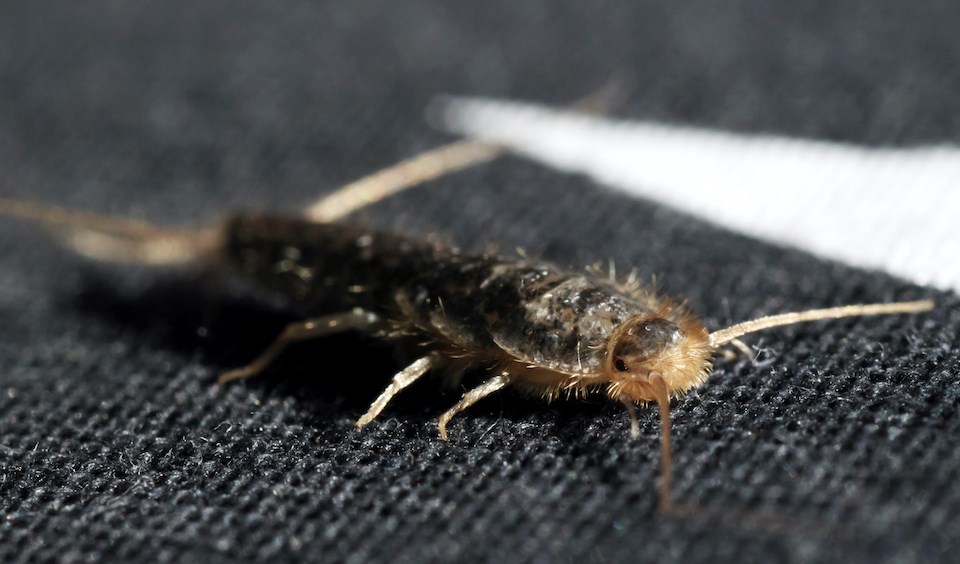While you won't require a detective to locate most pests in your home, getting rid of them may require some expertise.
As temperatures drop across the Metro Vancouver region, nuisance critters start to make their way indoors, while some insect populations die down.
But not all tiny creatures slow their roll heading into the spooky season.
According to Pest Detective President Chris Frederick, wasp numbers have surged in recent years, wreaking havoc on unsuspecting homeowners and businesses. The airborne insects appear much later into the season, with some of them causing issues in the winter.
While wasps are small, they can kill people who go into anaphylactic shock after they are stung. For someone who does not have an allergic reaction, a single sting will typically only cause pain.
Frederick, who has a background in entomology and has been solving pest problems since 1986, says warmer temperatures could result in a longer wasp season. But regardless of why the sting season has stretched out, his task remains the same: to safely locate nests with as little disturbance as possible and eliminate the source.
Should I tackle a wasp issue, or any other pest problem, on my own?
While it may be tempting to buy a domestic insecticide and deal with a wasp nest yourself, there are several risks in doing so. For one, the nest may contain thousands of individuals, meaning that you could face a swarm of angry insects if anything goes wrong. Even if you aren't allergic to the tiny creatures, that many stings pose a serious danger.
Frederick said he once had a homeowner show him where a nest was by banging on a wall and subsequently driving a horde of disturbed insects in his direction.
"He pounded on the wall and the wasps came out in a hurry," he told V.I.A., noting that he hadn't even had time to put on his bee suit before the ambush, resulting in a sting.
When his Vancouver-based company tackles a nest, they suit up with professional gear and use their expertise to solve the issue. Since it is typically a quicker, less complicated visit, these calls cost far less than other ones might.
Ants are another common insect issue heading into fall, particularly carpenter ants. The tiny critters typically enter homes through wet, damaged wood. They also excavate wood to build their homes, which is how they get their namesake.
While they may seem less gross than other pests, ant problems are widespread, making them Pest Detective's "number one" pest in the city.
Silverfish are another problematic creepy-crawler, with calls concerning infestations of the wiggly creatures increasing as the Metro Vancouver weather cools down. When people start to close their windows, the pests thrive in moist spots, such as bathrooms, which don't get proper ventilation, Frederick explained.
Of course, it doesn't take ideal conditions to spur a silverfish infestation, either. Their numbers also increase in messy houses or where people struggle with hoarding.
Firebrats are another common pest in local homes and they look "very similar" to silverfish but are bigger and often look grey or brown while silverfish look silver or blueish.
While many pests look unsettling, others pose a health threat and might go undetected. The carpet beetle flies into homes and thrives in places that don't get vaccuumed often, such as closets and other places that are often neglected. Their larvae are minuscule, meaning you probably won't know they are there. Since the growing pests need something to feed on, they often hang out by the head of the bed, which might not get vacuumed often and offers a feast of human hair and dead skin.
What's the best defense against carpet beetles and other pests?
Carpet beetles are tiny and you won't know you have a problem. However, regularly vacuuming all places in your home will keep populations from thriving. This may involve a bit of a headache (no one likes hauling everything out from under their bed or in their closet) but it will keep their numbers down.
The same logic applies to many pests, which thrive in hoarding or unclean conditions. Mice particularly enjoy messy homes, since they allow them to move fairly freely without being spotted. They can also build nests in the chaos.
Frederick says rodents are "at their peak numbers right now" and , likely due to 小蓝视频's ban on second-generation anticoagulant rodenticides (SGARs).
"No question we have more rodent calls," he said. "I don't want to say it but it's been more difficult. We used to be better with that product in our toolbox. It was just faster."
Other pests are less gross, like ladybugs, but their numbers can grow to huge infestations of 20,000 or more. They are important for the ecosystem since they feed on other pests, like aphids, but need to be dealt with in some circumstances.
Similarly, seeing one or two Western Looper Moths isn't a cause for concern but a swarming ambush will create chaos in a small space.
And what might be considered a "creepy crawly" to some people may also belong to a fairly remarkable species.
Frederick recalls going to someone's house after they discovered a pair of striking golden-blue crested beetles that were "pretty big and magnificent." The petite creatures crawled out of the wood in their 40-year-old home and the homeowners were concerned that several other individuals could emerge, too. That's when the pest detective discovered that the eggs may be stored in wood and not hatch for up to 20 years, meaning that someone could be living with the eggs for a long time before they find evidence of the critters.
"Every day we are solving problems in pest control. We really are pest detectives."




